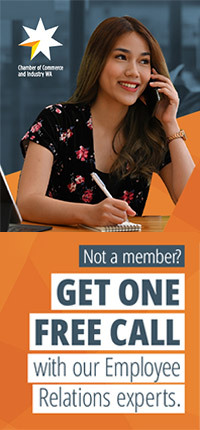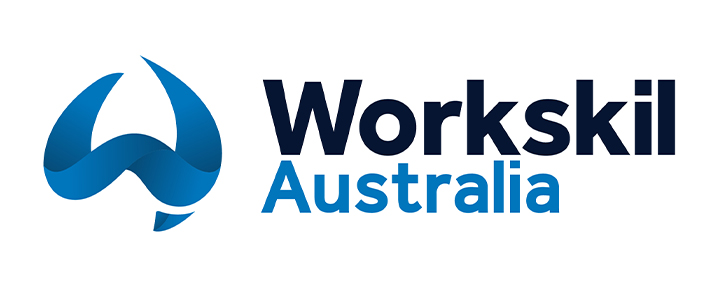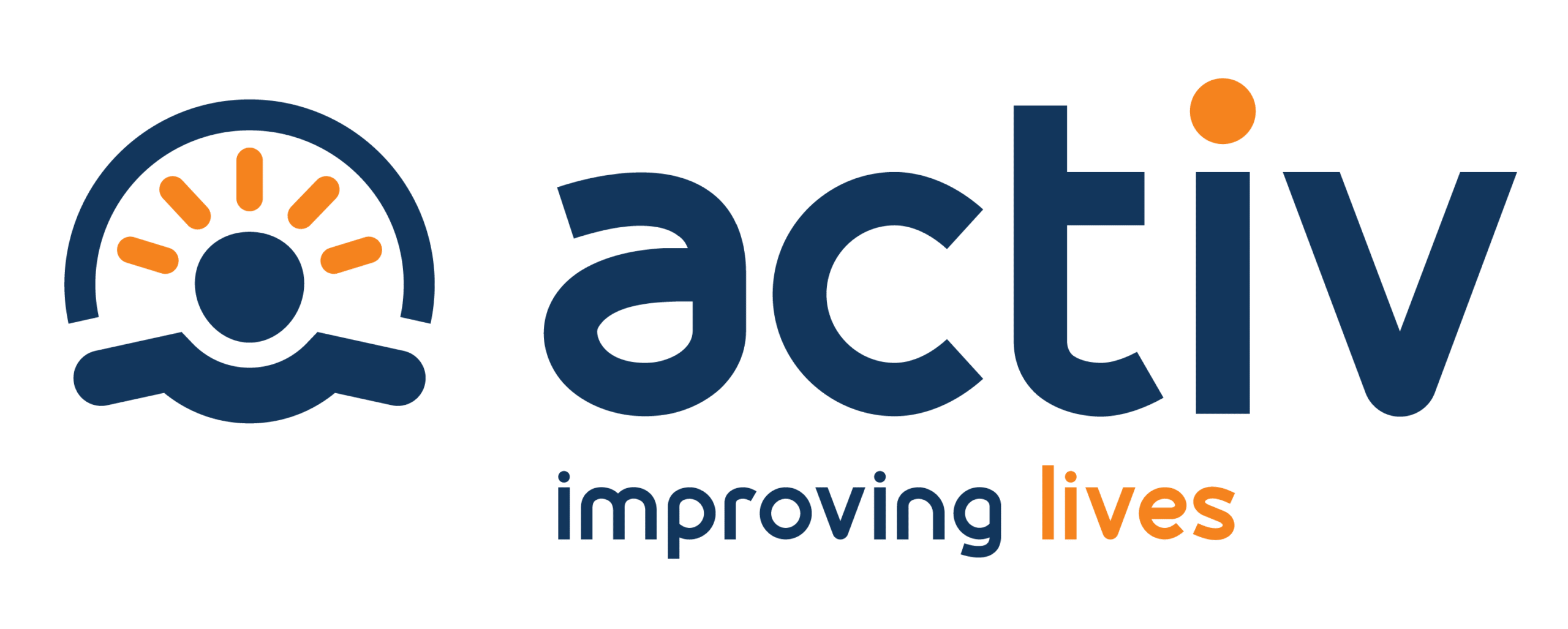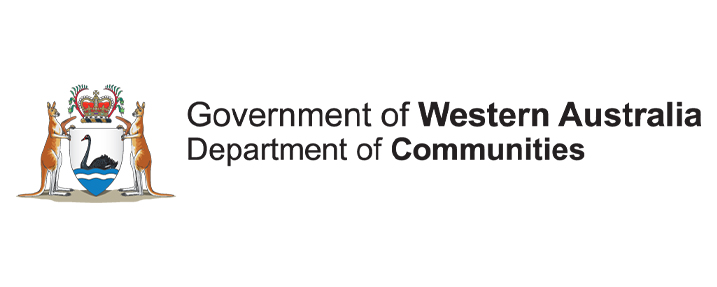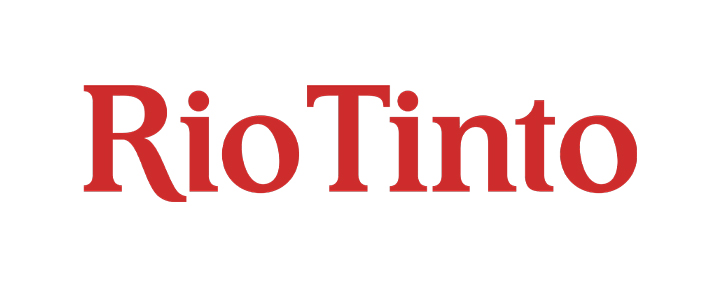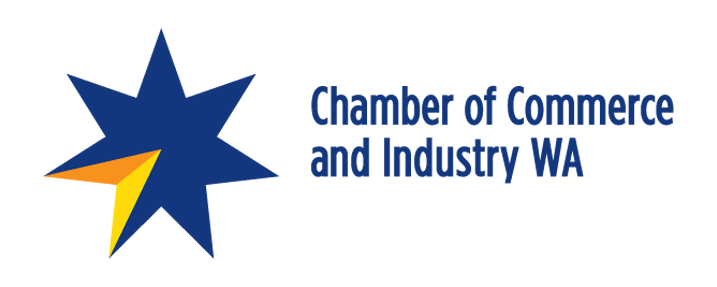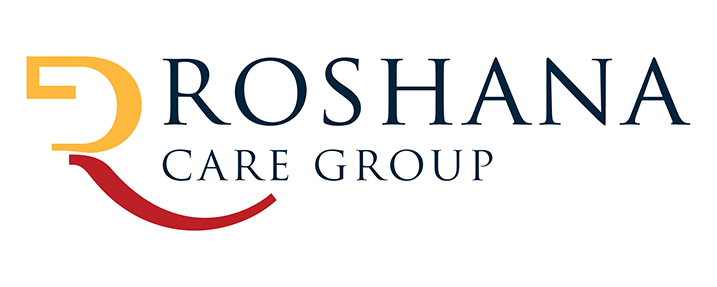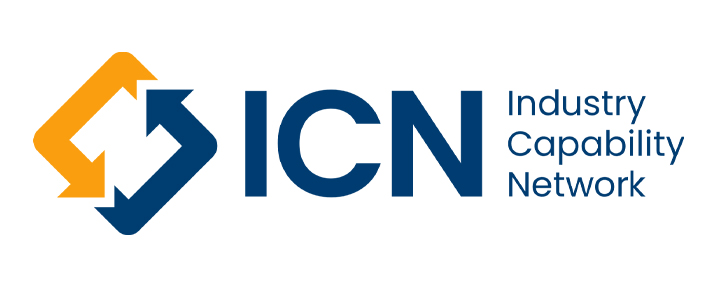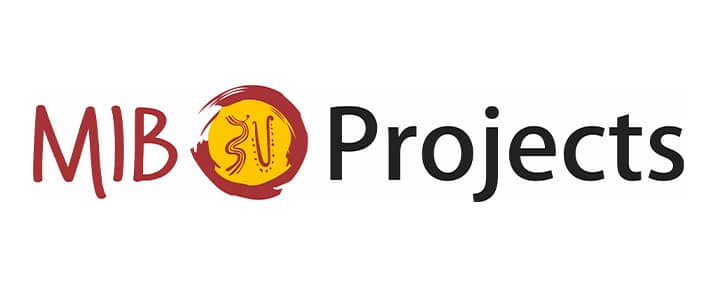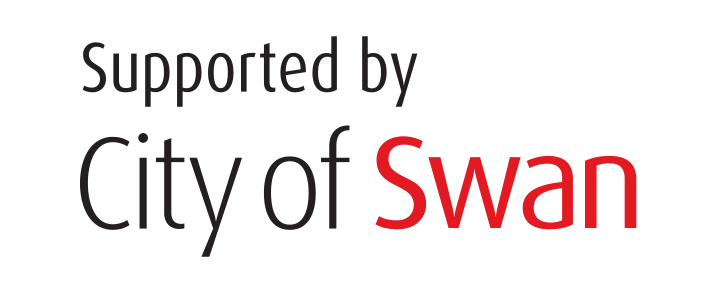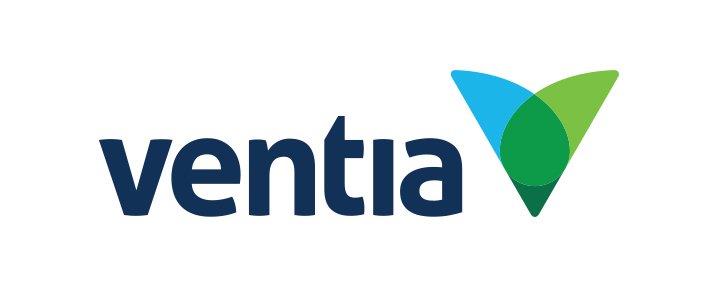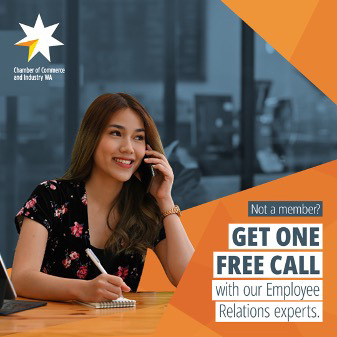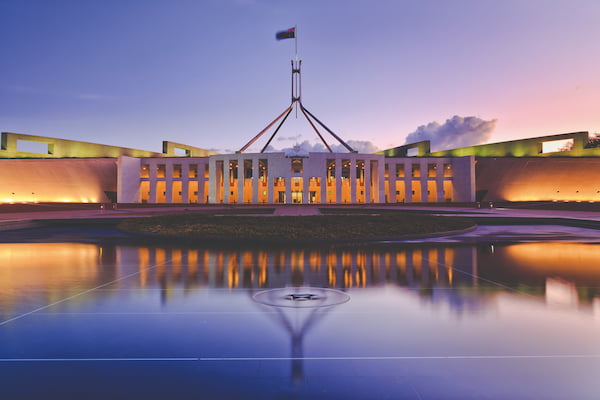New Workplace Laws
WA businesses face a seismic shift to the industrial relations landscape following major changes to Australia’s workplace laws. The changes will add cost and complexity to running a business, so it’s important you understand the new laws, and your business is prepared.
There is a new “general rule” for defining an employee as casual, which encompasses an absence of a firm advance commitment to continuing and indefinite work and that the employee is entitled to a casual loading or a specific casual rate. This will be followed by a number of ‘indicia’ which are to be used in this assessment.
Employees will now be able to provide written notification to their employer that they believe they no longer meet the definition of casual employee.
Expected start date: August 26, 2024
These changes will impact on businesses who engage labour hire and have an enterprise agreement in place. If enterprise agreement terms are better than those for labour hire employees, orders can enforce equivalent rates and conditions as if they were direct hire employees.
Start date: December 15, 2023
There is now a new definition to the ordinary meaning of an employee and an employer. This will be used when determining whether a worker is an employee or an independent contractor.
The relationship is to be determined by ascertaining the real substance, practical reality and true nature of the relationship between the individual and the person and considering the “totality” of the relationship. This not only applies to a written contract but also how it is done in practice and marks a return to the inconsistency of the multi-factorial test.
Expected start date: August 26, 2024
It will be a criminal offence to intentionally underpay your staff. Penalties include up to 10 years’ imprisonment for an individual, and three times the amount of the underpayment or $1.565 million (whichever is greater), or three times the amount of the underpayment or $7.825m for a body corporate (whichever is greater). Civil penalties for underpayments that do not constitute wage theft will also increase by at least fivefold.
Start date: January 1, 2025
There is now a new definition of “employee-like” workers who perform digital platform work (gig economy workers) under a services contract, and who meet certain criteria. The Fair Work Commission will have powers to make new minimum standards orders and minimum standard guidelines. There is also an “unfair deactivation” jurisdiction for the FWC to deal with disputes under employee-like workers’ deactivation from a digital labour platform.
Expected start date: August 26, 2024
The new laws introduce provisions for independent contractors in the road transport industry, similar to the ones proposed for gig economy workers.
The FWC will have the ability to set a range of minimum standards and guidelines, and there will be access to consent-based collective agreements and dispute resolution procedures for workers within this industry, who are not employees.
It also establishes an Expert Panel for the road transport industry and a Road Transport Advisory Group.
Expected start date: August 26, 2024
Union delegates will now have new rights and protections. This includes that an employer cannot unreasonably refuse to deal with delegates; knowingly or recklessly making false or misleading representations to a delegate; and unreasonably hindering, obstructing or preventing the exercise of the rights of the delegate.
Start date: December 15, 2023
The changes introduce stronger protections against discrimination for employees who have been subjected to family and domestic violence. This includes new protections for employees who have or are being subjected to family and domestic violence. It also prohibits the inclusion of terms into industrial instruments that discriminate against employees on these grounds.
Start date: December 15, 2023
New WHS laws impose a primary duty of care a “person conducting a business or undertaking” (PCBU). Increased penalties include the offence of industrial manslaughter, which carries a potential imprisonment term of up to 20 years and a fine of up to $5 million for an individual or PCBU and up to $10m for a body corporate.
Start date: March 31, 2022
Employees will have the right to disconnect and not respond to their employer after or outside work hours. If an employer takes adverse action against an employee for exercising these new rights, they will be at risk of breaching the general protections provisions.
Expected start date: August 26, 2024
Arbitrated decisions by the FWC in bargaining disputes cannot offer worse terms for employees than those that exist in any pre-existing enterprise agreement. Under the changes, the terms in a workplace determination, other than wage increase and agreed terms, can be no less favourable to employees or employee organisations compared to a term in an existing enterprise agreement.
Expected start date: February 27, 2024
The current definition of sham contracting (when misrepresenting employment as an independent contractor arrangement) will change. The new law requires that the employer reasonably believes the contract is a contract for service, which will result in a more objective test.
Expected start date: February 27, 2024
Watch recorded sessions that’ll help you navigate the new laws, and inform you on how your business is affected.
Our team have prepared current, comprehensive reading material to assist you in understanding the key changes.
We have an extensive range of up-to-date resources to help you navigate the challenge of the new workplace laws.
To help keep you informed, we have a wide range of upcoming online and in-person events that you’re able to attend.
The WA-based Employee Relations Advice Centre is here to assist you in managing your employee relations & IR needs.
Webinar Series
‘Helping you through the new IR laws’ – Webinar Series
These recorded sessions are here to help you navigate the challenge of the new workplace laws and to ensure you’re aware of how you and your business are affected.
Workplace Laws
* Required
Resources
We have an extensive range of up-to-date resources to help you navigate the challenge of the new workplace laws.
‘IR Reform Unpacked’ – Webinar Series
Become a Member to access ‘IR Reform Unpacked’
Our ‘IR Reform Unpacked’ webinar series is available exclusively to Members.
Our Membership Packages have been created to connect you to the resources and people you need to be successful.
Already a member?
We have a range of upcoming webinars and events to keep you informed.
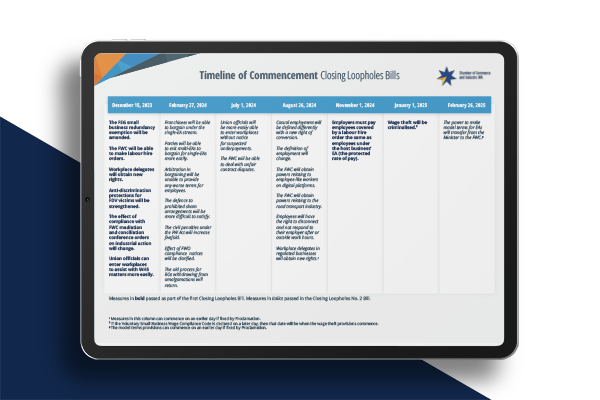
The remainder of the Federal Government’s Closing Loopholes Bill, including intractable bargaining provisions, changes to casual employment and the right to disconnect, has passed Parliament – signalling the start of new Australian workplace laws. Our Quick Dates Guide outlines the key changes that are going to impact businesses of all sizes, nation-wide.

Containing simple, easy to read information on employer obligations under the Fair Work Act 2009, this Guide is a must for individuals charged with the day-to-day responsibility of managing a business and/or employees. It includes condensed case law summaries and explanations on how the law should be applied, with regular updates to reflect changes in legislation or case law.
The power to make model terms for EAs will transfer from the Minister to the FWC (Can commence on an earlier day if fixed by Proclamation)
Wage theft will be criminalised (May be delayed if Voluntary Small Business Wage Compliance Code is declared on a later day)
Employers must pay employees covered by a labour hire order the same as employees under the host business’ EA (the protected rate of pay)
Casual employment will be defined differently with a new right of conversion
The definition of employment will change
The FWC will obtain powers relating to employee-like workers on digital platforms The FWC will obtain powers relating to the road transport industry
Employees will have the right to disconnect and not respond to their employer after or outside work hours
Workplace delegates in regulated businesses will obtain new rights (The above measures can commence on an earlier day if fixed by Proclamation)
Union officials will be more easily able to enter workplaces without notice for suspected underpayments
The FWC will be able to deal with unfair contract disputes
Franchisees will be able to bargain under the single-EA stream
Parties will be able to exit multi-EAs to bargain for single-EAs more easily Arbitration in bargaining will be unable to provide any worse terms for employees
The defence to prohibited sham arrangements will be more difficult to satisfy The civil penalties under the FW Act will increase fivefold
Effect of FWO compliance notices will be clarified
The old process for ROs withdrawing from amalgamations will return
Changes to EA approval process, including a new Statement of Principles on Genuine Agreement
Changes to the better off overall test (BOOT)
New single interest and supported bargaining streams (multi-employer bargaining)
Changes to bargaining disputes, including increased avenues for arbitration
Changes to protected industrial action
Changes to flexible working requests and unpaid parental leave requests
Penalties for pay secrecy and new workplace rights for employees
Notification to employees due for pre-reform agreements
Fixed and maximum term contracts will be limited to two years (including extensions)
Sunsetting of pre-reform agreements
Inclusion of Superannuation entitlements in the NES
More flexibility for unpaid parental leave under the NES
Workplace determinations for EA matters
Changes to deductions from wages
Casuals treated the same as permanent EEs under Coal Mining LSL Scheme
Greater protections for migrant workers
“Same Job, Same Pay” for labour hire workers
Criminalisation of “wage theft”
Strengthening protections under discrimination law
New rights for union delegates
Changes to initiating bargaining that allow unions to commence bargaining to replace expired enterprise agreements
Fair Work Commission (FWC) can deal with minor enterprise agreement errors
Termination process for enterprise agreements is now more limited
New FWC expert panels are being appointed
Sexual harassment orders and FWC Applications available to employees
Reverse onus of proof for sexual harassment in the workplace
ROC/ABCC have been abolished
Services
Our expert support services are available to help your business work through the new workplace laws.
Employment Law
CCIWA has an experienced and innovative legal practice that specialises in workplace relations and employment law matters for businesses of all sizes. We have a large team of specialist employment lawyers with substantial experience and success in assisting clients to ensure their workplaces are legally compliant, safe and productive.
Employee Relations Advice Centre
The Employee Relations Advice Centre is here to help you manage your employee relations needs. This includes prompt advice on your circumstances, consulting, documents and current industrial relations information.
Our Members have unlimited access to our Employee Relations Advice Centre.
Training & Guide
Sign up to a host of training opportunities or utilise our extensive range of guides to learn more about the new workplace laws.

Our new IR Masterclass is a unique opportunity to build on your knowledge across a range of industrial relations areas. For those with mid-level experience, it will serve to develop your skills to a professional level and for those with a high-level of experience it will further hone your skills and update you on key concepts across a rapidly evolving profession.
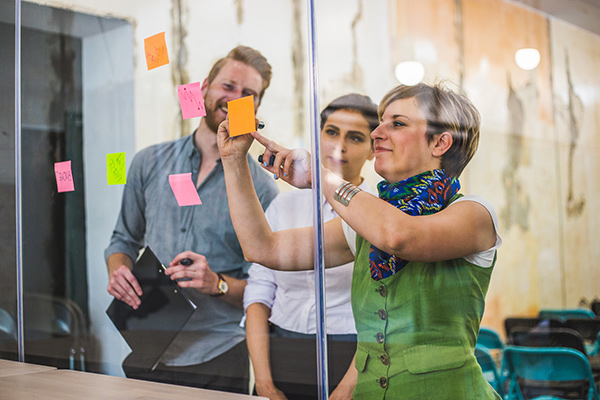
Our workplace learning solutions are developed by our highly experienced Workplace Relations Consultants, who work with you to find the best solution for your needs. Our training workshops are conveniently held at our Perth CBD Offices, or for customised training we can come to you, your team, or your workplace no matter where you are in WA.

Employers now have a positive duty to take reasonable and proportionate measures to eliminate unlawful sex discrimination, sexual harassment, sex-based harassment, work environments that are hostile on the grounds of sex and victimisation in relation to these matters. CCIWA’s Respect@Work packs can assist you in meeting these very important obligations.

Our experts prepare and update practical, ready-to-use guides to assist with employee and industrial relations matters. CCIWA Membership gives you discounts on all of our HR Kits and Guides.
Award Categories
The Indigenous Inclusion Award is dedicated to celebrating outstanding achievements in fostering Indigenous representation, inclusion and diversity. This award acknowledges individuals, organisations, and initiatives that have demonstrated a commitment to creating inclusive environments that honour and empower Indigenous communities.
Nominees for this award are encouraged to reference the following qualifications where possible.
Authentic Representation: Recognises individuals or entities that have demonstrated a genuine commitment to accurately and respectfully represent Indigenous cultures, traditions and perspectives in their work, projects, or initiatives.
Community Collaboration: Acknowledges those who actively engage and collaborate with Indigenous communities, fostering partnerships built on mutual respect, understanding and shared goals. This includes initiatives that promote economic empowerment, education and social wellbeing within Indigenous communities.
Cultural Sensitivity: Honours efforts to promote and maintain cultural sensitivity in all aspects of work, avoiding appropriation and ensuring that Indigenous voices are not only heard but actively valued.
Inclusive Policies and Practices: Recognises organisations that have implemented policies and practices that actively promote the inclusion of Indigenous individuals, both within the workplace and in broader societal contexts.
Educational Initiatives: Celebrates programs or initiatives that contribute to the education and awareness of Indigenous history, culture and issues. This includes educational campaigns, workshops and resources that aim to eliminate stereotypes and foster a deeper understanding of Indigenous perspectives.
The Indigenous Inclusion Award is dedicated to celebrating outstanding achievements in fostering Indigenous representation, inclusion and diversity. This award acknowledges individuals, organisations, and initiatives that have demonstrated a commitment to creating inclusive environments that honour and empower Indigenous communities.
Nominees for this award are encouraged to reference the following qualifications where possible.
Authentic Representation: Recognises individuals or entities that have demonstrated a genuine commitment to accurately and respectfully represent Indigenous cultures, traditions and perspectives in their work, projects, or initiatives.
Community Collaboration: Acknowledges those who actively engage and collaborate with Indigenous communities, fostering partnerships built on mutual respect, understanding and shared goals. This includes initiatives that promote economic empowerment, education and social wellbeing within Indigenous communities.
Cultural Sensitivity: Honours efforts to promote and maintain cultural sensitivity in all aspects of work, avoiding appropriation and ensuring that Indigenous voices are not only heard but actively valued.
Inclusive Policies and Practices: Recognises organisations that have implemented policies and practices that actively promote the inclusion of Indigenous individuals, both within the workplace and in broader societal contexts.
Educational Initiatives: Celebrates programs or initiatives that contribute to the education and awareness of Indigenous history, culture and issues. This includes educational campaigns, workshops and resources that aim to eliminate stereotypes and foster a deeper understanding of Indigenous perspectives.
The Indigenous Inclusion Award is dedicated to celebrating outstanding achievements in fostering Indigenous representation, inclusion and diversity. This award acknowledges individuals, organisations, and initiatives that have demonstrated a commitment to creating inclusive environments that honour and empower Indigenous communities.
Nominees for this award are encouraged to reference the following qualifications where possible.
Authentic Representation: Recognises individuals or entities that have demonstrated a genuine commitment to accurately and respectfully represent Indigenous cultures, traditions and perspectives in their work, projects, or initiatives.
Community Collaboration: Acknowledges those who actively engage and collaborate with Indigenous communities, fostering partnerships built on mutual respect, understanding and shared goals. This includes initiatives that promote economic empowerment, education and social wellbeing within Indigenous communities.
Cultural Sensitivity: Honours efforts to promote and maintain cultural sensitivity in all aspects of work, avoiding appropriation and ensuring that Indigenous voices are not only heard but actively valued.
Inclusive Policies and Practices: Recognises organisations that have implemented policies and practices that actively promote the inclusion of Indigenous individuals, both within the workplace and in broader societal contexts.
Educational Initiatives: Celebrates programs or initiatives that contribute to the education and awareness of Indigenous history, culture and issues. This includes educational campaigns, workshops and resources that aim to eliminate stereotypes and foster a deeper understanding of Indigenous perspectives.
The Disability & Access Inclusion Award, sponsored by Activ, celebrates an individual or organisation that has demonstrated an innovative approach and leadership in fostering disability and access inclusion. This award recognises dedication to breaking down barriers, promoting inclusivity and creating environments that empower everyone, regardless of their abilities.
Nominees for this award are encouraged to reference the following qualifications where possible.
Innovative Inclusion Initiatives: Recognises efforts to deliver inventive and effective initiatives that enhance accessibility in various aspects of life, including but not limited to education, employment, public spaces and digital platforms.
Impactful Advocacy: Highlighting advocacy for the rights and needs of individuals with disabilities, driving positive change through community engagement or by pushing for policy change.
Barrier-free Environments: Displaying a commitment to removing physical, social and digital barriers, ensuring that their spaces and services are universally accessible to everyone.
Inclusive Technology Integration: Recognising individuals or organisations that leverage technology to create and implement solutions that enhance accessibility, promote digital inclusion and empower individuals with disabilities.
Sustainable Impact: Recognising individuals or organisations that make a lasting impact on the lives of people with disabilities, creating a ripple effect of positive change that extends beyond immediate initiatives.
The Cultural Inclusion Award recognises individuals, organisations, or initiatives that have demonstrated an exceptional commitment to fostering cultural inclusion within their organisations or fields. The award celebrates people and organisations that make sure all voices are heard and feel valued and respected, regardless of cultural backgrounds, ethnicities or identities, and that everyone feels empowered to contribute, learn and thrive.
Nominees for this award are encouraged to reference the following qualifications where possible.
Dedicated Advocacy: Recognising a commitment to advocating for cultural inclusion and diversity by actively embracing different cultures and promoting cross-cultural understanding.
Innovative Initiatives: Implementing pioneering programs, projects, or strategies that promote cultural inclusion in creative and impactful ways that have tangible outcomes, fostering meaningful interactions among individuals from diverse backgrounds.
Community Engagement: Demonstrating a dedication to building a culturally inclusive workplace by engaging with people from various cultural backgrounds. This involvement could include organising events, workshops, seminars, or other activities that promote cultural exchange and dialogue.
Leadership and Collaboration: Strong leadership teams that promote cultural inclusion and working collaboratively so diverse stakeholders and staff feel respected, heard and valued in a safe environment that celebrates and respects different cultures.
Measurable Impact: Showcasing the positive impact an individual or organisation has had on cultural inclusion within their sphere of influence. This could be quantified through statistics, testimonials, or stories that highlight the changes and improvements brought about by their efforts.
Educational Outreach: Candidates who have contributed to raising awareness and educating others about the value of cultural diversity and inclusion are highly regarded. This could involve teaching about different cultures, history, traditions and their significance.
Overcoming Challenges: Showcasing an ability to face and overcome obstacles while championing cultural inclusion.
In recognition of outstanding commitment to fostering a workplace community, or organisation that embraces and celebrates diversity in all its vibrant forms. This award honours innovation in creating an environment where every individual, regardless of their sexual orientation, gender identity, or expression, feels valued, respected and included.
Nominees for this award are encouraged to reference the following qualifications where possible.
Inclusive Policies and Practices: The recipients of this award should demonstrate a clear dedication to inclusivity by implementing and upholding policies that actively support LGBTQIA+ individuals. This includes non-discriminatory hiring practices and fair treatment in all aspects of employment or engagement.
Education and Awareness: Recognising and acknowledging that understanding is the cornerstone of acceptance, the awardee invests in education and awareness programs to promote understanding and empathy among all staff members. This may involve workshops, training sessions, or initiatives that cultivate a culture of respect and openness.
Representation: Highlighting active steps towards ensuring that LGBTQIA+ individuals are represented at all levels within the organisation or community. This could involve diverse representation in leadership, visible support through events, and initiatives that amplify LGBTQIA+ voices.
Safe and Inclusive Spaces: Celebrating the creation of physical and emotional spaces that are safe and welcoming for everyone, irrespective of their sexual orientation or gender identity. This encompasses both physical environments and digital platforms.
The Gender Inclusion Award recognises and celebrates organisations or individuals who have demonstrated exceptional commitment and innovation in fostering an environment of gender inclusivity. This award acknowledges those who have gone above and beyond to promote equality, diversity, and respect for all gender identities.
Nominees for this award are encouraged to reference the following qualifications where possible.
Inclusive Policies and Practices: Showcasing concrete efforts in implementing inclusive policies and practices that actively support and embrace individuals of all gender identities.
Leadership and Advocacy: Acknowledging those who have shown exemplary leadership in advocating for gender inclusion, both within their organisation and in the wider community by actively promoting a culture of openness and acceptance.
Diversity and Representation: Highlighting significant strides in ensuring diverse representation at all levels of an organisation, recognising that true gender inclusion requires representation from all backgrounds and identities.
Educational Initiatives: Recognising successful implementation of educational programs and initiatives to raise awareness about gender diversity, fostering a more informed and supportive community.
Measurable Impact: Judges will look for evidence of measurable impact, whether through increased representation, improved workplace satisfaction, or other indicators that demonstrate a positive change resulting from the nominee’s efforts.
The Community & Social Impact Award recognises individuals or a team who have demonstrated exceptional commitment, leadership and innovation in promoting diversity and inclusion through policy advocacy and social initiatives that have had a measurable impact in making WA the best place to live and do business.
Whether through innovative policies, impactful programming, educational initiatives, or strategic partnerships, this award celebrates those who have demonstrated their unwavering commitment to advancing equal opportunities and representation for historically marginalised and underrepresented groups.
Nominees for this award are encouraged to reference the following qualifications where possible.
Influential Leadership: Showcasing exceptional leadership skills by mobilising teams, communities and stakeholders to collectively work towards achieving change.
Innovative Initiatives: Recognising creative and innovative programs that offer opportunity and provide assistance and support to marginalised and isolated communities, while inspiring others to follow suit.
Impactful Social Advocacy: Celebrating effective social advocacy campaigns that help drive change at a community level regarding diversity and inclusion issues. This can include organising and participating in events, workshops, seminars and other activities, and could be demonstrated through data-driven results, such as increased representation of underrepresented groups, improved employee satisfaction scores, or measurable reductions in bias incidents.
Education and Awareness: Demonstrating a commitment to educating others about the value of diversity and inclusion. This could include conducting workshops, seminars, or training sessions to raise awareness, challenge biases and promote understanding among peers and colleagues.
Sustainability and Longevity: Showcasing a demonstrated commitment to change and fostering diversity, equity and inclusion long after initial implementation.
The Individual Change Maker Award acknowledges the dedicated efforts of an individual that has displayed outstanding leadership, innovation and commitment to advancing diversity and inclusion programs or initiatives. This award celebrates efforts to deliver exemplary workplace environments where people from all backgrounds feel valued, empowered and able to contribute their unique perspectives.
Nominees for this award are encouraged to reference the following qualifications where possible.
Impactful and Innovative Leadership: Showcasing exemplary leadership skills in the context of diversity and inclusion, resulting in tangible positive changes, either by creating more inclusive environments, addressing systemic bias, or fostering better relationships among diverse groups while highlighting new ideas, methods, or strategies that have effectively expanded opportunities and reduced disparities.
Sustained Effort: Recognising a history of consistent and sustained efforts in promoting diversity and inclusion, whether through long-term community involvement, continuous organisational development, or ongoing educational programs.
Collaboration and Partnerships: Celebrating successful collaboration with others, including partnerships and engagement in cross-sector initiatives that promote diversity and inclusion.
Measurable Outcomes: Highlighting clear evidence of impact, including data, testimonials, case studies, or other quantifiable measures that highlight the effectiveness of their work.
Community Engagement: Recognising active community engagement by reaching out to diverse groups and incorporating their input into the diversity and inclusion initiatives. This reflects a commitment to listening to and learning from underrepresented voices.
The Workplace Wellbeing Award recognises individuals, organisations, or initiatives that demonstrate an outstanding commitment to fostering a comprehensive and multi-faceted wellbeing strategy in the workplace. This award celebrates those who have made a substantial impact in promoting a harmonious balance of physical, mental, emotional and social wellbeing, encompassing various aspects of life.
Nominees for this award are encouraged to reference the following qualifications where possible.
Integrated Wellbeing Strategy: Showcasing a well-defined and all-encompassing approach to wellbeing that goes beyond isolated initiatives, including a comprehensive strategy that addresses physical health, mental resilience, emotional intelligence, social connectivity and environmental consciousness.
Diverse Wellness Initiatives: Recognising wellness programs and initiatives that cater to diverse needs and preferences. These initiatives may encompass fitness programs, mental health workshops, emotional support networks, nutritional guidance, mindfulness practices and other activities that contribute to the overall enrichment of participants’ lives.
Collaborative Engagement: Celebrating collaboration with various stakeholders, including employees, community members, experts and partners with an emphasis on engagement and active participation and fostering a sense of belonging and shared responsibility among individuals.
Measurable Impact: Recognising tangible improvements in wellbeing. This could be reflected in quantitative metrics such as reduced stress levels, increased physical activity, improved mental health assessments or enhanced work-life balance.
Innovation and Adaptability: Showcasing a willingness to innovate and adapt their strategies to changing circumstances. This could involve incorporating emerging wellness trends, utilising technology for remote engagement, and making adjustments to cater to evolving needs and challenges.
Long-term Sustainability: Spotlighting long-term sustainability of wellbeing initiatives. This could involve building a culture of wellbeing that transcends short-term trends and remains a central aspect of the organisation’s identity.
Educational and Empowering Elements: Recognising initiatives that not only provide support but also empower individuals to take ownership of their own wellbeing journey. This could involve offering educational resources, tools and guidance that enable participants to make informed choices about their health and happiness.
The Best D&I Initiative: Small Business Award recognises outstanding efforts in promoting diversity and fostering inclusion within a small business and celebrates initiatives that show a genuine dedication to embracing diverse perspectives, backgrounds and experiences.
Nominees for this award are encouraged to reference the following qualifications where possible.
Strategy and Vision: Exhibiting a well-defined and comprehensive diversity and inclusion strategy, aligning with the organisation’s core values and long-term vision and demonstrating a clear roadmap for achieving diversity and inclusion goals.
Innovative Practices: Showcasing creativity and innovation through initiatives that break away from conventional methods and demonstrate new, effective ways of promoting a diverse and inclusive environment.
Employee Engagement: Fostering a sense of belonging and engagement among employees from various backgrounds and empowering employees to share their perspectives, engage in open dialogue and contribute to an inclusive work environment.
Measurable Impact: Include measurable evidence of the initiative’s impact. This could include data on workforce demographics, retention rates, employee satisfaction, promotions and other relevant metrics that highlight positive changes resulting from the initiative.
Leadership Buy-in: Recognising visible and consistent buy-in from top leadership, as well as engagement at all levels of the organisation.
Collaboration and Partnerships: Highlighting collaboration with external organisations, community groups, or industry partners to enhance diversity and inclusion efforts.
Sustainability: Acknowledging strategies for maintaining momentum, adapting to changing circumstances, and continuously evolving to meet the evolving needs of the organisation and workforce.
Cultural Transformation: Exhibiting cultural transformation within the organisation, including shifts in attitudes, behaviours, and overall workplace dynamics that reflect a more inclusive and welcoming environment for all employees.
The Best D&I Initiative: Medium Business Award recognises outstanding efforts in promoting diversity and fostering inclusion within medium business and celebrates initiatives that go beyond policies and show a genuine dedication to embracing diverse perspectives, backgrounds and experiences.
Nominees for this award are encouraged to reference the following qualifications where possible.
Strategy and Vision: Exhibiting a well-defined and comprehensive diversity and inclusion strategy, aligning with the organisation’s core values and long-term vision and demonstrating a clear roadmap for achieving diversity and inclusion goals.
Innovative Practices: Showcasing creativity and innovation through initiatives that break away from conventional methods and demonstrate new, effective ways of promoting a diverse and inclusive environment.
Employee Engagement: Fostering a sense of belonging and engagement among employees from various backgrounds and empowering employees to share their perspectives, engage in open dialogue and contribute to an inclusive work environment.
Measurable Impact: Include measurable evidence of the initiative’s impact. This could include data on workforce demographics, retention rates, employee satisfaction, promotions and other relevant metrics that highlight positive changes resulting from the initiative.
Leadership Buy-in: Recognising visible and consistent buy-in from top leadership, as well as engagement at all levels of the organisation.
Collaboration and Partnerships: Highlighting collaboration with external organisations, community groups, or industry partners to enhance diversity and inclusion efforts.
Sustainability: Acknowledging strategies for maintaining momentum, adapting to changing circumstances and continuously evolving to meet the evolving needs of the organisation and workforce.
Cultural Transformation: Exhibiting cultural transformation within the organisation, including shifts in attitudes, behaviours and overall workplace dynamics that reflect a more inclusive and welcoming environment for all employees.
The Best D&I Initiative: Corporate Enterprise Award recognises outstanding efforts in promoting diversity and fostering inclusion within corporate enterprises and celebrates initiatives that go beyond policies and show a genuine dedication to embracing diverse perspectives, backgrounds and experiences.
Nominees for this award are encouraged to reference the following qualifications where possible.
Strategy and Vision: Exhibiting a well-defined and comprehensive diversity and inclusion strategy, aligning with the organisation’s core values and long-term vision and demonstrating a clear roadmap for achieving diversity and inclusion goals.
Innovative Practices: Showcasing creativity and innovation through initiatives that break away from conventional methods and demonstrate new, effective ways of promoting a diverse and inclusive environment.
Employee Engagement: Fostering a sense of belonging and engagement among employees from various backgrounds and empowering employees to share their perspectives, engage in open dialogue, and contribute to an inclusive work environment.
Measurable Impact: Include measurable evidence of the initiative’s impact. This could include data on workforce demographics, retention rates, employee satisfaction, promotions and other relevant metrics that highlight positive changes resulting from the initiative.
Leadership Buy-in: Recognising visible and consistent buy-in from top leadership, as well as engagement at all levels of the organisation.
Collaboration and Partnerships: Highlighting collaboration with external organisations, community groups, or industry partners to enhance diversity and inclusion efforts.
Sustainability: Acknowledging strategies for maintaining momentum, adapting to changing circumstances and continuously evolving to meet the evolving needs of the organisation and workforce.
Cultural Transformation: Exhibiting cultural transformation within the organisation, including shifts in attitudes, behaviours and overall workplace dynamics that reflect a more inclusive and welcoming environment for all employees.
Contact
Do you need help with how the new workplace laws will affect you? Get in touch today.
Membership
Our Members have unlimited access to our Employee Relations Advice Centre.
The Employee Relations Advice Centre is here to help you manage your employee relations needs. This includes prompt advice on your circumstances, consulting, documents and current industrial relations information.
Not a member?
Contact Our Team
Telephone: (08) 9365 7660
Email: [email protected]
Alternatively, you can complete the form below and one of our consultants will contact you.
* Required







